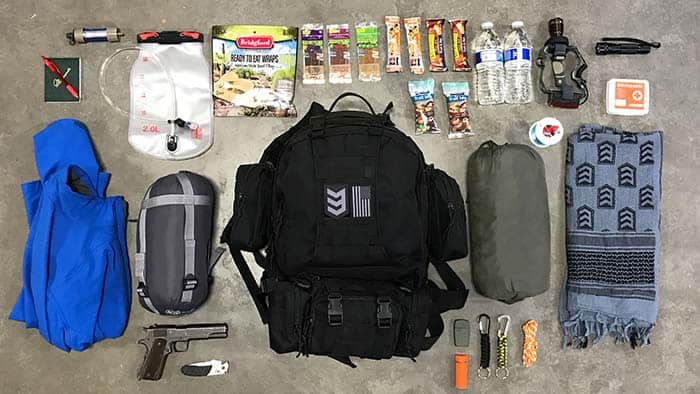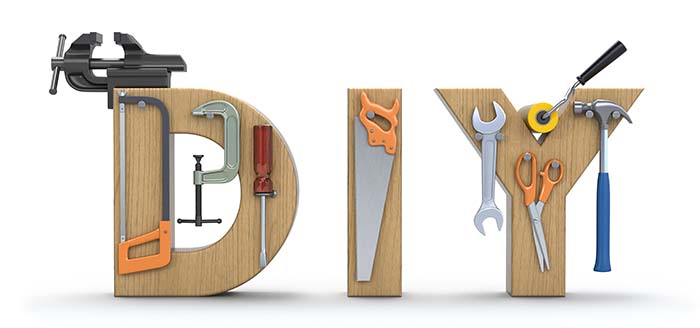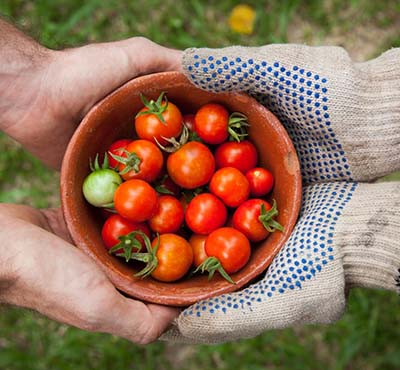Preppers, homesteaders and off-gridders, oh my! You’ve probably heard all three of these terms, and most of the time, people use them interchangeably.
The Takeaway
- Preppers get ready for big emergencies. They think something major could happen that changes everything, like a big disaster. So, they gather food, water, and other important stuff to make sure they can take care of themselves if something goes wrong.
- Homesteaders like to do things on their own. They grow their own food and might even make their own clothes or fix things instead of buying new ones. They want to live simply and not depend too much on stores or other people for what they need.
- Off-Gridders are people who choose to live without relying on the main systems that most people use every day, like electricity from power companies or water from the city. They find their own ways to get these things, like using solar panels for electricity or collecting rainwater. Everyone who lives off-grid does it for their own reasons, but they all like the idea of being more independent and figuring out how to take care of their own needs without depending on the usual services.
While it’s true that all three groups have a lot in common, and there’s a significant amount of overlap, with some people falling into more than one category, they are distinct groups, and they tend to do what they do for very different reasons.
We’ll take a look under the hood at all three in this article, in hopes of giving you a better understanding.
Ready? Let’s get to it!
Inside the Mind of A Prepper
Preppers tend to be the most focused, and in many ways, the most pragmatic of the three groups.
The reason?
They’re convinced that the world as we know it is going to come to an end, probably sooner than most people realize, and they want to be ready to survive the aftermath of the end of civilization.
The exact cause of the end of the world will differ, depending on who you talk to. Some preppers worry about a takeover by an oppressive government. Others worry about a global pandemic. Still, others cite an EMP as the precipitating event.
Whatever the specific reason cited, all preppers are working toward the same fundamental goal: when things fall apart, they mean to be ready. They’ll not only survive, but thrive amid the chaos, and when the dust settles, they’ll be in a position to influence the shape and direction of the new civilization that rises from the ashes of the old.
To that end, preppers tend to focus first and foremost on the basics.
Every prepper worth his or her salt will have a well-stocked “bug-out-bag” which contains enough provisions to see them through the first several days.

In addition to this, you can count on seeing a massive stockpile of dry goods (beans, flour, salt, sugar, MREs, boxed or canned foods, and the like), plenty of bottled water, and the basic tools that will be required to rebuild once the dust settles. And guns, of course, to protect it all.
The most serious preppers will buy land in remote areas, build housing there, sink a well, and install their own power, which are the trappings that make them similar to the other two groups. But first and foremost in the prepper’s mind is getting through the first several months, post-collapse.
Inside the Mind of A Homesteader
Homesteaders may or may not believe that the end of the world as we know it is right around the corner, but even if they do, that’s not what drives them. Mostly, homesteaders are committed do-it-yourselfers. They’re fiercely independent, many are minimalists, and all of them are (or yearn to be) as self-reliant as possible.

Most have utterly rejected the consumerist model that our modern society is built around, and long to return to simpler times. If they want something, these are the people whose first thought is to make it themselves. Failing that, they’ll try to find something used they can fix up and make their own. If neither of those is practical, they’ll trade for it, and only head to town to buy it as a last, grudging resort.
Most homesteaders tend to stockpile food, but for different reasons than preppers do. Since they tend to live in remote areas, they just don’t want to find themselves stranded, cut off from civilization, and unable to get needed supplies. A generously-sized stockpile helps ensure that if there’s a severe winter that strands them for weeks, or if their crops fail, they’ll be okay.
Inside the Mind of An Off-Gridder
Sustainability.
That’s the watchword of the off-gridder and the thing that primarily drives them.

Most are keenly aware of the changes that climate change will bring about, and understand that an oil-based global economy is certain to bring destruction in the long run. To that end, many, if not most of them, try to live more sustainable lives, to serve as a counterweight.
The thinking is, the more people who live sustainably, the less likely we are to see catastrophic changes to the global environment. And if the worst happens, then at the very least, they’ll be well-positioned to thrive in the changing environment.
As such, off-gridders tend to borrow traits from both of the other groups. Climate change may not bring about the end of the world as we know it (at least not immediately), but it will stress and strain the global system.
The critical difference is that while preppers tend to focus first and foremost on the basics that are necessary for surviving the immediate aftermath, off-gridders tend to focus on energy first, then water, then food, in an attempt to create a self-sustaining, renewable paradise for themselves and their families.
This naturally makes them fairly self-reliant, although there are marked differences in how the two groups approach various problems.
Homesteaders tend to like doing things old-school, while off-gridders are quick to embrace the latest technologies, and pretty much anything else that will help them advance their goal.
Final Thoughts on Preppers, Homesteaders, and Off-Gridders
Note that there are no hard, fast rules here, and the descriptions above won’t necessarily apply to every member of each group, but broadly speaking at least, this is how the three groups shake out.
At the end of the day, if you’re interested in buying some acreage and getting away from it all, it doesn’t matter what your reasons are, only that you’re following your dreams. Having said that, it does pay to spend at least some time considering your motivations, as they will shape and direct your priorities once you’ve purchased your own little slice of heaven.